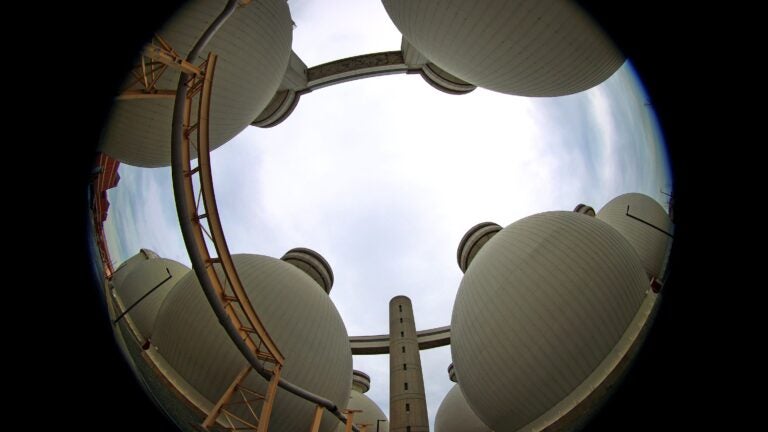COVID-19 numbers are spiking in Mass. wastewater. Is it time for surge policies?
COVID
Wastewater surveillance can be an early warning sign of COVID-19’s community spread.

Levels of COVID-19 in eastern Massachusetts wastewater have shot up in recent days, potentially indicating an upswing in cases.
Wastewater surveillance can be an early warning sign of COVID-19’s spread, sometimes detecting shedded virus even before infected people develop symptoms, according to the Centers for Disease Control and Prevention.
The Massachusetts Water Resources Authority tracks wastewater at the Deer Island Treatment Plant for indicators of the virus, with samples taken several times a week and analyzed by Biobot Analytics, according to the MWRA website.
Samples submitted through Wednesday showed a spike of COVID-19 in both the northern and southern sections of the MWRA system, covering 43 communities including Boston.
What does this spike mean?
Boston’s COVID-19 metrics have risen steadily over the past few weeks, and the city “will likely see similarly elevated rates of COVID-19 cases and hospitalizations in the coming weeks, data which often lags behind wastewater,” the Boston Public Health Commission (BPHC) said in a Thursday press release.
The commission urged residents to take precautions, adding that the city hasn’t experienced levels this high since May.
“This spike in our wastewater concentration is of great concern and another reminder that the pandemic is far from over,” Dr. Bisola Ojikutu, commissioner of public health and executive director of the Boston Public Health Commission, said in a statement.
Ojikutu added: “The key to protecting ourselves remains the same, and these tools are particularly important given this current trend: get vaccinated, get boosted, and wear masks indoors. By protecting ourselves now, we can reduce the risk of infection as we spend more time indoors in the fall and winter.”
With wastewater levels rising, now is the time to implement surge mitigation measures, according to Dr. Julia Raifman, an assistant professor of health law, policy, and management at Boston University’s School of Public Health.
Raifman created and leads the COVID-19 U.S. State Policy Database, tracking policies to reduce the virus’s spread, as well as economic hardship during the pandemic. Ideally, she said, a surge would automatically trigger certain policies — temporary indoor masking and routine testing in schools, for example.
“It’s really something that only leaders can do,” she told Boston.com in an interview. “No individual child can keep COVID out of the air; that’s only something that leaders can do.”
It may be politically expedient to downplay the pandemic, Raifman said, “but the costs to doing that are immense. The cost to society is very high; we have teacher shortages, we have health care worker shortages, we have bus driver shortages.”
She added: “We see how much that is disrupting the city, and I think we have to acknowledge that it is something only leaders can lead us through.”
What can you do?
Asked if it has considered or is considering any COVID-19 surge policies, the state Department of Public Health emphasized the importance of vaccination, testing, and treatment for those with mild to moderate symptoms.
The DPH advises masking indoors for those with weakened immune systems, at increased risk of severe disease, or with household members who fall into either category.
Based on current trends, the Boston Public Health Commission continues to recommend indoor masking, according to its release. The commission also recommended that residents take other mitigation measures, including staying up to date on COVID-19 vaccines, testing themselves before and after large gatherings, and staying home and isolating if sick or positive.
BPHC is hosting a free COVID-19 vaccination and booster clinic at White Stadium in Franklin Park on Saturday from 10 a.m. to 5 p.m. The city is offering $75 gift cards to those under the age of 18 who get vaccinated or boosted — and to one caregiver who accompanies them and gets a shot — while supplies last. Walk-ins are welcome, but appointments can also be made online in advance.
Vaccination and masking efforts are particularly crucial in light of the COVID-19 surge that began last fall and lasted through January, according to Raifman.
“Had we come together to help more people get vaccinated before then, had we come together to wear masks in all crowded indoor spaces and to make sure we protected each other and essential workers, I think we could have reduced that toll quite a bit and helped more families be together today,” she said.
Newsletter Signup
Stay up to date on all the latest news from Boston.com
Read More: COVID-19 numbers are spiking in Mass. wastewater. Is it time for surge policies?

